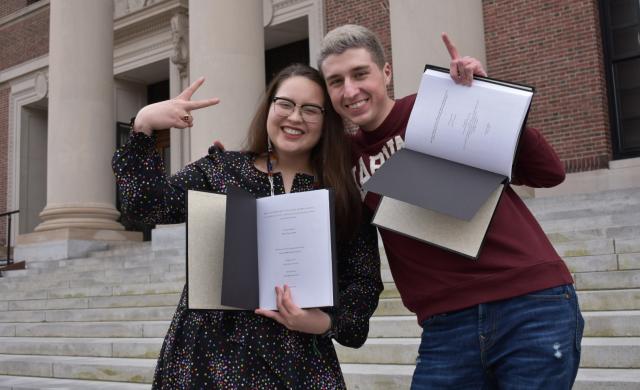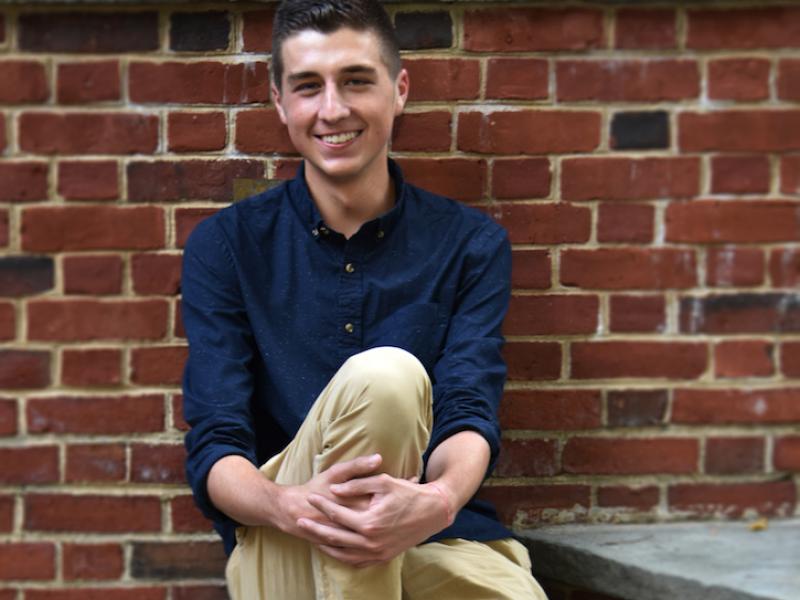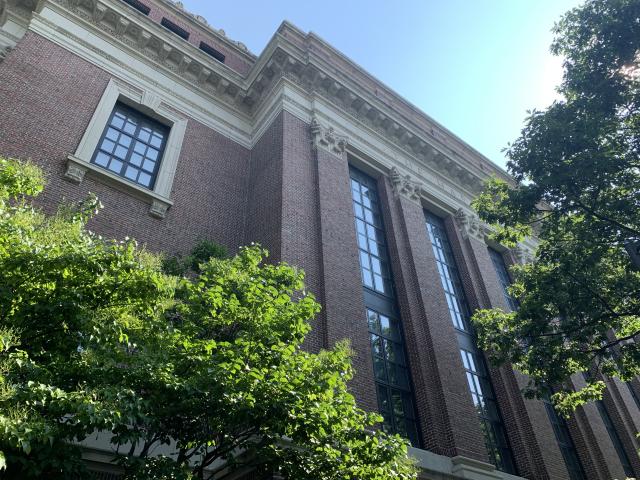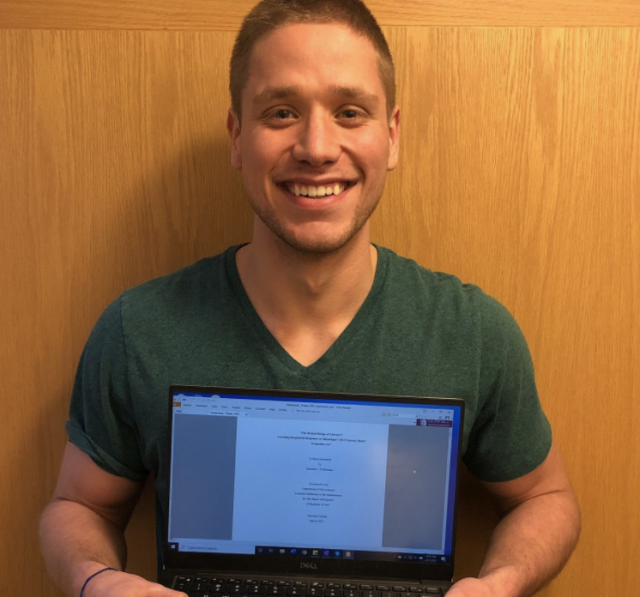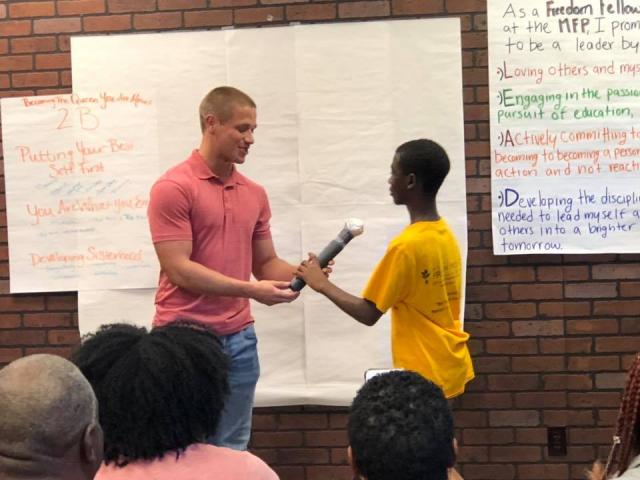A few weeks ago, I submitted my senior thesis at Harvard.
Titled “More than Missing: Analyzing Missing and Murdered Indigenous Women Policy Trajectories in the United States and Canada, 2015-2019,” my thesis sought to compare and contrast two national governmental responses to the pattern of Missing and Murdered and Indigenous Women (MMIW), a violent and puzzling phenomenon that adversely affects Native American, First Nations, and other Indigenous women similarly in both nations. I study a joint concentration of Government and the Studies of Women, Gender, and Sexuality (WGS), so my thesis sought to join those two disciplines together.
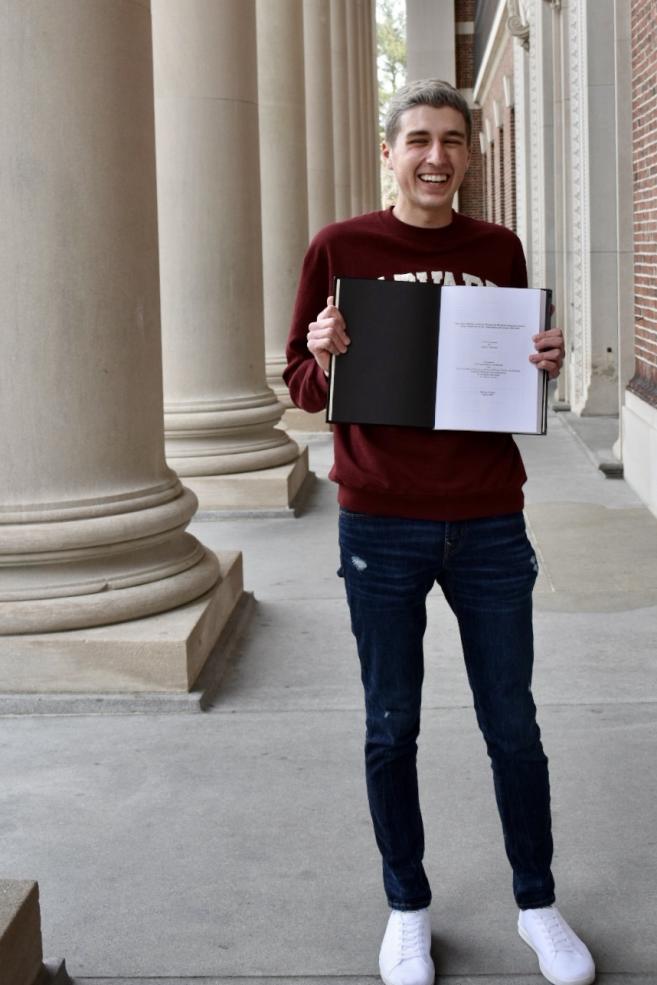
Me with my completed thesis!
Every spring, seniors take pictures at Widener library with their completed theses to celebrate their hard work. Ashley Hamilton
However, when I began my first year of college four years ago, I had no idea that I wanted to write a thesis, let alone know I wanted to study a joint concentration in two departments that I had never taken a class in. In fact, when I applied to Harvard, I thought I was going to study Chemistry (and maybe even French). While I ended up pursuing neither of those fields in college, my four years at Harvard allowed me to explore and interact with fields I didn’t have the chance to in high school, and now leading me to be well-versed in feminist, Indigenous, and political theories.
At Harvard, you don’t declare your concentration (or major) until your sophomore year, and you are free to change it at any point during your Harvard career (with the appropriate advising, of course). In fact, I didn’t declare my joint concentration until the fall of my junior year, over two years after I arrived to campus. For all joint concentrations, a senior thesis is required to complete our degrees (and is meant to join the two concentrations together), so I started thinking about what I wanted to write about as soon as I started thinking about pursuing the joint concentration.
I knew that I wanted to write about an Indigenous-centered topic; I am Indigenous and throughout my studies I’ve always felt Indigenous people did not have a large enough presence in academia generally. I chose to write specifically on the pattern of MMIW, as though a lot of research exists that seeks to explain the pattern and provide history and background from a policy perspective, little work has been done to explain MMIW policies. Thus, I sought to not only marry my two disciplines but also produce knowledge on something I felt was understudied.
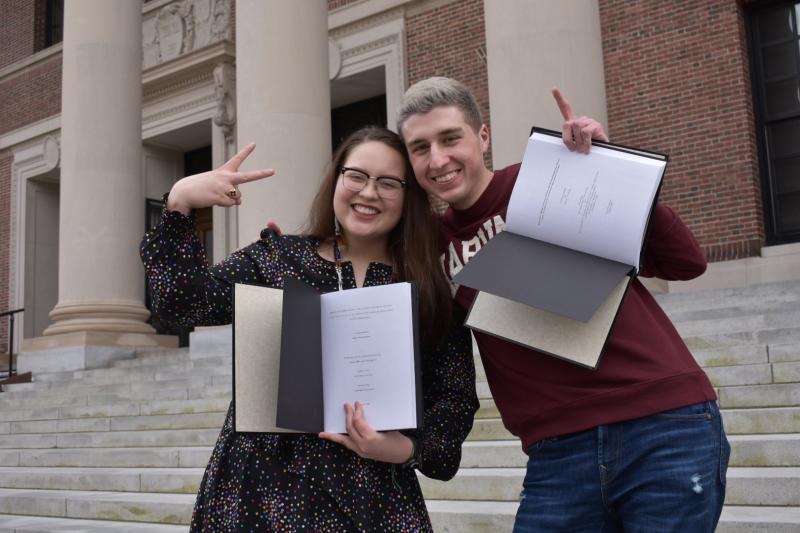
Two Friends, Two Completed Theses!
Here's a photo of me with my best friend, who really helped me through the entire thesis process. Ashley Hamilton
With the help of my thesis advisers (two incredible and brilliant scholars), my friends, and the limitations of existing research, I was able to narrow my focus into an answerable research question, which ended up with my completed thesis. Writing a thesis was one of the hardest and most time-consuming tasks I’ve ever completed as a student at Harvard, but it also was one of the most rewarding and enriching. While you spend most of your college career reading and writing about other scholars' works, the senior thesis is a rare opportunity for you to be the researcher and expert on a subject that you get to choose. Thus, picking a thesis topic, is the first stop on a student’s journey from a student pursuing knowledge to a teacher producing knowledge.

